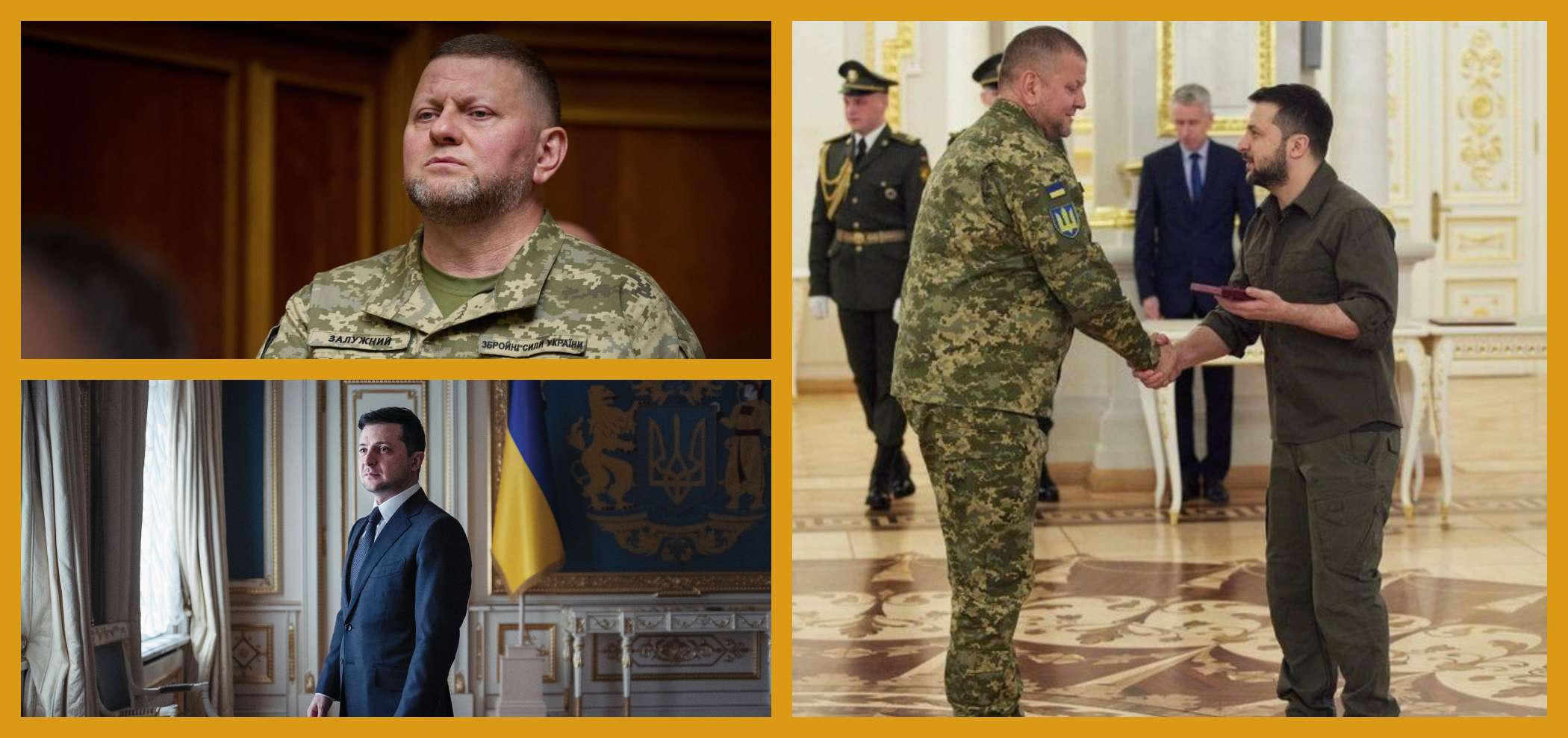Ukraine's president, Volodymyr Zelensky, announced in an interview the other day that Ukraine's counteroffensive failed. After months and weeks of reversals, contradictions, and denials, the Ukrainian president had to accept that Ukraine's much-desired counteroffensive was at a dead end.
Zelensky admitted that the command expected more from the counteroffensive that started in the summer, but the results were insufficient. "We wanted faster results. From this point of view, unfortunately, we have not achieved the desired results, which is a fact," said Vladimir Zelensky. He added that he is happy that Ukraine's armed forces did not back down while fighting against the "second army of the world." Let's pay attention to the wording. The Russian army is called "the second army of the world." And this is when the same Zelensky proudly announced it a year ago, in October. "The Armed Forces of Ukraine are destroying the so-called "second army of the world."
Formulations, in this case, are more than necessary. But these are only the tip of the iceberg. The first attacker, if it can be so, was Valery Zaluzhny, the commander of the Armed Forces of Ukraine, admitting in his article in The Economist that Ukraine's counteroffensive has failed, that they are in a positional war, and without allies, Ukraine will not be able to achieve tangible success.
This was paralleled by the "attack" of Maryana Bezluga, the chairman of the Defense Committee of the Supreme Rada (Parliament) of Ukraine, against the military leadership of the army and Zaluzhn personally. Bezluga even published a state secret stating that the Armed Forces of Ukraine planned to draft 20,000 men every month in 2024 and accused the army of not having a plan. "Not big, not small, not asymmetrical, not symmetrical."
His attack on Zaluzhni resulted in a political "bomb explosion." At the same time, in recent weeks, Bezuglaya had already made several posts, accusing the Armed Forces' leadership of Ukraine of inefficiency. All this against the backdrop of growing rumors of a conflict between President Zelensky's office and the high military command, the slowdown of Western aid, the stabilization of Russian defense, and the distraction of the world's attention. Ukraine's top leadership has not yet condemned Bezuga's statements, although many deputies from the ruling Servant of the People party have done so.
In any case, the reaction of the presidency, or rather the lack of it, suggests that Zelensky's office is at least not against or does not see a problem with Bezluga's statements. Of course, it is a question of how relevant Zaluzhnu's article was first politically. After all, the Armed Forces commander is in a military position and should be far from politics, no matter how much he speaks in military vocabulary.
Victories have a thousand owners; defeats are orphans. These words are always remembered in this situation, which is truly tragic. The war is deadlocked, positional battles are going on, and both Russia as the attacker and Ukraine as the defender have been exhausted. It is a positional war with an unclear outcome, mutual rejection of peace negotiations, and mutual maximalism.
The Zaluzhny-Zelensky standoff is symbolic—a skirmish between war-weary civilian and military authorities, a skirmish against the backdrop of the collapse of hopes of a counteroffensive failure.
At the end of the second year of the war, no trace of the former unity remained in the Ukrainian elite. The more the battles drag on, the more the elites look for culprits in Kyiv. The most dangerous borderline is the contradictions between civil and military authorities, which are personified by the figures of President Volodymyr Zelensky and the Commander-in-Chief of the Armed Forces of Ukraine, Valery Zaluzhny. The contrast was not about who did more for the victory but about who bears greater responsibility for Ukraine's counterattack not being a breakthrough.
No matter how much Zelensky's office and various officials try to attribute it all to Russian "conspiracies," it is a fact that there are problems, and they not only do not go away but also branch out.


















